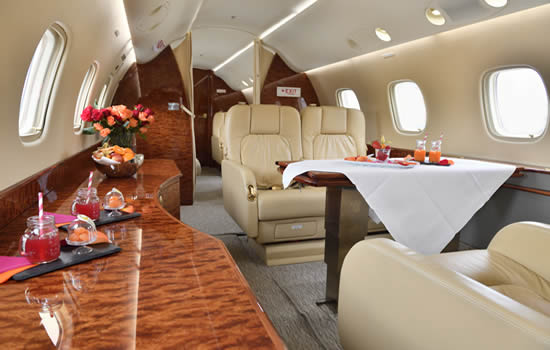Managers and owners: how to work perfectly together
Aircraft management is an art. From a jet flown almost daily on charter services to a turboprop for the sole use of the owner, successful management demands a mix of clinical efficiency and warm personal support. The relationships between aircraft owners and their managers/operators are actually among the most important partnerships in business aviation.
There are, in truth, far too many aspects to aircraft management to cover everything in one article. Here, though, are just a few of our insights into the best ways to develop those owner/manager relationships, based on our many years of experience of aircraft management and operation at Luxaviation UK:
Try to build trust quickly. It’s only natural owners don’t really want to give away the keys to their expensive new jet, so respect and address those concerns at once. Prove their aircraft will be safe under your management as soon as possible. Having built trust . . .
Nurture the relationship. It’s a great feeling when you help an owner realise the potential of their aircraft, not least through making the jet available for charter. Again, it may take time before an owner is comfortable letting third parties fly in their beloved jet but placing an aircraft with an operator is an excellent way to offset the many costs of ownership. And as most owners fly fewer than 200 hours a year, plenty of time remains available for third parties to charter the jet.
Make sure owners feel comfortable with their level of control over their aircraft. Some owners might want to be involved in every decision, at least until trust has developed. Always respect that position, offering informed advice whenever possible but never patronising owners as if they need to be ‘educated’ if you disagree with their choices. After all, they have spent a lot of money on the aircraft. They have every right to monitor your activities closely. In fact, however, most owners don’t want to be involved in all the issues of aircraft management. They find the paperwork a pain, crewing a chore and hangarage a hassle. More often than not, therefore, you need to…
Take charge, so the owner can relax. Ensure, for example, you keep original versions or copies of all key documents relating to managed aircraft. Always hold records that prove to the owner maintenance is being carried out correctly. On this subject, many owners don’t want the operator to also be the maintenance provider, to avoid a conflict of interests. Naturally, you respect that decision but, in fact, maintenance is so highly regulated no real risk exists.

Earlier this month, Luxaviation UK added an Embraer Legacy 600 to its managed fleet. The aircraft, based at Istanbul Airport, is available for full charter services with a full-time crew.
Work closely with advisers. The owner respects his or her advisers, which means you should respect and involve these key team members too.
Share the benefits of working together. Showing the value of strength in numbers, leading management companies and operators can negotiate volume discounts and low prices in areas such as fuel, handling, hangarage and airport fees. Those savings can then be passed on to owners. Good management companies also save owners money on insurance premiums by adding the aircraft to a group policy.
Be honest. For example, you can avoid disappointment, or even conflict, by making sure the owner understands offering a jet for charter only offsets costs rather than delivering profits.
Keep your advice up to date. For example, if a potential owner approaches us today and asks for advice on choosing an aircraft to buy, we can point out single-engine turboprops (SETPs) are now allowed to carry out commercial air transport operations in Europe. Although the charter market for turboprops has been shrinking, therefore, SETPs might enjoy a resurgence (following that March 2017 ruling). As turboprops are cheaper to buy and operate than jets, potential owners might welcome that up-to-date insight as they plan their purchase.
Talk. Even in our digital world, with so much outstanding, cutting-edge global communications technology driving business aviation forward, it’s still so helpful to meet owners face-to-face as often as you can. When you do, you soon . . .
Understand that every owner’s needs are unique. You must be flexible.
Look after all the arrangements when the owner wants to fly. The flight itself is just a part of your job. If necessary, arrange hotel accommodation and cars to and from airports. Take care of inflight preferences for everyone travelling, from food and drink to newspapers. Will the owner be flying with his or her family? Do the children have any particular needs or wishes?
From financial matters to maintenance, aircraft management is a complex business. Owners deserve the very best service for their extremely valuable assets.
A good management company thinks of everything.
![]()
www.luxaviation.com
Stapleford Airport
Stapleford Tawney
Essex, RM4 1SJ
United Kingdom
+44 (0)1708 688420
BlueSky Business Aviation News | 27th June 2019 | Issue #516
Share this article
| © BlueSky Business Aviation News Ltd 2008-2019 |


